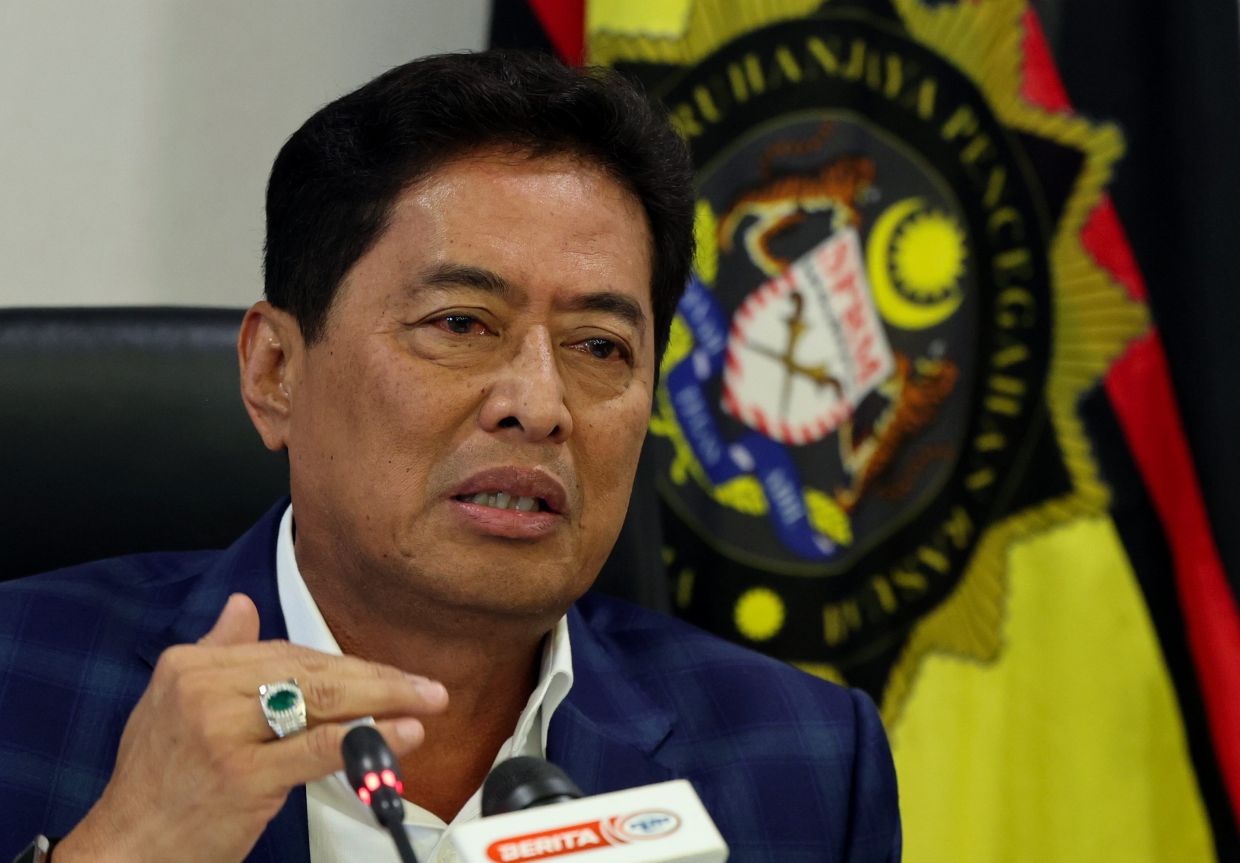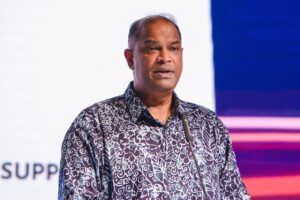PUTRAJAYA: A national blueprint called Keep Malaysia Clean (KMC) will ensure that the culture of anti-corruption will be ingrained in all Malaysians from an early age all the way to the workplaces, says Tan Sri Azam Baki.
Stating that corruption is as chronic as cancer, the Malaysian Anti-Corruption Commission (MACC) chief commissioner stated that the endemic culture has to be eradicated through the collaboration of all authorities, as MACC cannot work in isolation.
Azam said this during the launch of the Keep Malaysia Clean (KMC) programme by Prime Minister Datuk Seri Anwar Ibrahim held in conjunction with the 58th anniversary of MACC here Wednesday (Oct 1).
He also said the success of MACC so far was due to a clear political will and full support from the federal government.
Stating that MACC has come a long way since its formation 58 years ago, Azam paid tribute to the collaboration between MACC and other authorities in combating corruption.
Over the past few years, MACC collected RM28 bil in recovery of assets in corruption cases, he said.
“Corruption is like a chronic disease – like cancer – which, if left untreated, will destroy the nation. We have witnessed how RM2bil had been lost to corruption over the past two decades, damaging our economy and eroding public confidence.
“This success did not come from MACC alone, but through strong collaboration with the Royal Malaysia Police (PDRM), the Inland Revenue Board (LHDN), the Domestic Trade and Cost of Living Ministry and the Royal Malaysian Customs Department, the Attorney General’s Chambers, as well as international partners through the Mutual Legal Assistance (MLA) mechanism,” said Azam.
One of MACC’s latest achievements includes the resolution of the JPMorgan Chase & Co. case, which saw Malaysia recover US$330mil (RM1.4 bil).
Following joint investigations under the Malaysia Asset Recovery Task Force (MATF) with cooperation from the DOJ, FBI, OAG Switzerland, and other parties, Malaysia is now on the right path to recover assets that rightfully belong to its people.
During his speech, Azam said MACC has evolved from the Anti-Corruption Agency (ACA) in 1967 to MACC in 2009, to keep up with the times.
“The anti-corruption methods of two decades ago may not be relevant today.
“At the recent National Governance Special Cabinet Committee meeting, the government in principle agreed to introduce the legal framework for a Deferred Prosecution Agreement (DPA), which may be passed next year.
“MACC, together with the AG’s Chambers, is actively drafting the provisions for this purpose.
“The DPA, long practiced in developed countries like the United States and United Kingdom, will provide the Government with the ability to accelerate asset recovery, reduce public fund losses due to abuse of power, and improve the effectiveness of corporate corruption prosecutions,” said Azam.
He said that under the MACC Strategic Plan 2021–2025, the Commission has identified three main directions and strategies toward achieving a Corruption-Free Nation.
“The first is strengthening effective enforcement (operations sector) by focusing on high-profile cases and cases involving national interest – with emphasis on government procurement, enforcement agencies, public funds/special allocations, and national revenue and income.
“Under the comprehensive corruption prevention (prevention sector), MACC conducts governance studies, data analysis, and risk assessments; focusing on high-risk public and private agencies, expanding anti-corruption education from preschool to university level and intensifying media dissemination and strengthening integrity units in agencies,” said Azam.
Azam further said that MACC also cultivates integrity in the management sector, ensuring that MACC’s management remains transparent, efficient, and uncompromised.






